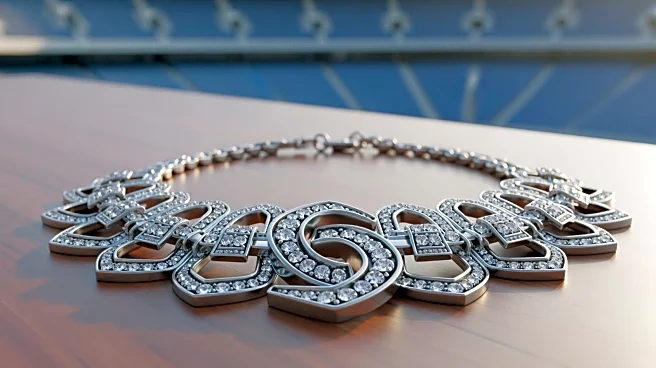What's Happening?
Jordon Hudson, former college cheerleader and partner of Bill Belichick, made a notable appearance at the University of North Carolina's home game against Stanford. Hudson wore a necklace with the word
'Banned,' addressing rumors from May that she was prohibited from UNC's facilities. The university had previously denied these claims, stating Hudson is welcome at Carolina Football facilities despite not being an employee. Belichick, who began his tenure as UNC's head football coach in December 2024, has faced a challenging season with his personal life and the football program under scrutiny. Despite these challenges, Belichick's team secured a 20-15 victory over Stanford, marking their second consecutive win.
Why It's Important?
The incident highlights the intersection of personal relationships and professional responsibilities in collegiate sports. Hudson's public response to the rumors underscores the impact of personal narratives on public perception and team dynamics. For Belichick, managing both his coaching responsibilities and the media attention surrounding his personal life presents unique challenges. The situation also reflects broader themes in sports management, where personal affiliations can influence public and institutional interactions. The team's recent victories may help stabilize Belichick's position and shift focus back to athletic performance.
What's Next?
The University of North Carolina's football team is set to face Wake Forest next Saturday. As Belichick continues to navigate his first season, the team's performance in upcoming games will be crucial for his tenure. Stakeholders, including university officials and fans, will likely monitor both the team's progress and any further developments in Belichick's personal life. The outcome of these games could influence Belichick's future at UNC and the narrative surrounding his coaching career.
Beyond the Headlines
The situation raises questions about the role of personal relationships in professional sports environments. It highlights the potential for personal narratives to overshadow athletic achievements and the importance of managing public perception. The incident also reflects on the broader cultural dynamics within sports, where personal affiliations can impact professional opportunities and reputations.










